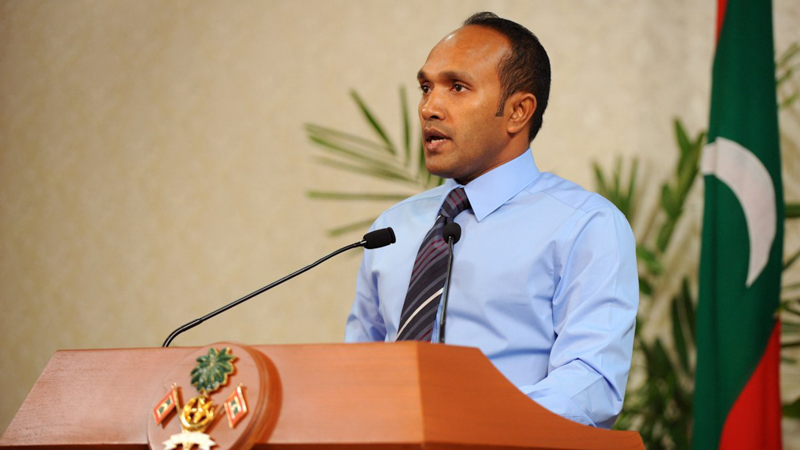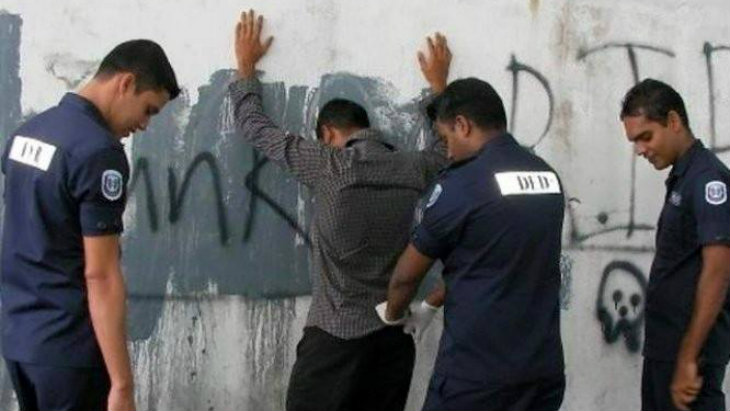The People’s Majlis has notified vice president Dr Mohamed Jameel Ahmed of a resolution calling for his removal, and granted him 14 days to respond to charges.
The notice was sent on June 30. Jameel must respond orally or in writing by July 13.
The motion to impeach has not been placed on the Majlis agenda yet, secretary general Ahmed Mohamed said.
The ruling Progressive Party of Maldives (PPM) had secured 61 signatures on the impeachment motion. A two-thirds majority or 57 votes of the 85-member house is required to remove the president or the vice president.
Jameel is in London at present. PPM MPs have said that President Abdulla Yameen has ordered his deputy to return and answer the charges. But Jameel told an Indian newspaper that he had obtained permission before travelling to the UK for a human rights seminar.
The parliament has changed its standing orders to fast-track the process of impeaching the vice president. The new rules state the Majlis can vote on the vice president’s impeachment without an investigation by a select committee.
Jameel has called his party’s attempts to remove him a “constitution coup,” and suggested that the international community should intervene.
Speaking to the New Indian Express on Tuesday Jameel said, “There is complete disregard for parliamentary procedure just to get the tourism minister after me. This is personal vengeance.”
PPM MPs have publicly accused Jameel of disloyalty and incompetence and are seeking to replace Jameel with tourism minister Ahmed Adeeb.
Responding to Jameel’s allegations, Adeeb told Haveeru that Jameel had fled the Maldives after a failed coup attempt.
“A lot of people are accusing him of leaving with a lot of money and a lot of things. He is even now accused of dereliction of duty and fleeing the country. He has left the country because the coup he had planned has failed,” he said.
Adeeb also slammed Jameel’s call for help from the international community.
Jameel told the New Indian Express he had carried out his duties as ordered by President Yameen. “The President has to tell me that I have not performed properly, but he never told me that.”
Minivan News was unable to reach Jameel at the time of going to press.
Jameel had kept silent on the petition for impeachment, but released a statement on Twitter on Tuesday, in which he accused the PPM parliamentary group of greed and said that MPs have arbitrarily amended the constitution for their personal interests.
The parliament last week passed the first amendment to the constitution with overwhelming multi-party consensus to set the new age limits of 30-65 years for the presidency and vice presidency.
Adeeb is now 33. The constitution previously stated that candidates must be 35 years of age.
The opposition’s backing for the amendment is widely perceived to be a deal made in exchange for jailed ex-president Mohamed Nasheed’s transfer to house arrest.
The government and Nasheed’s Maldivian Democratic Party (MDP) are now preparing to begin talks to end a six-month long political crisis.


